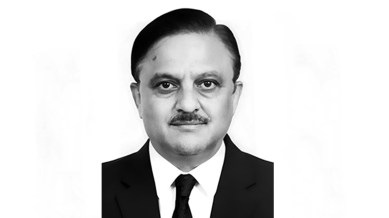Stay updated with the latest - Click here to follow us on Instagram
Dissent over elevation of Justice Pancholi should be made public: Former SC judge Justice Oka
He was referring to the dissent noted by Justice BV Nagarathna, one of the five judges in the Collegium, in recommending Justice Vipul Pancholi for appointment as an SC judge on 25 August.

Terming it a “great deal of concern,” former Supreme Court Justice Abhay S Oka Wednesday, said that the dissent in the Collegium on the elevation of Justice Vipul Pancholi to the top court must be made public.
“This is a question of great deal of concern…We have to define what is transparency. You are right when you say that one judge has dissented, we must know what is that dissent, there is nothing wrong in that. You will be justified in criticising why the dissent is not on the public domain,” he said.
He was referring to the dissent noted by Justice BV Nagarathna, one of the five judges in the Collegium, in recommending Justice Vipul Pancholi for appointment as an SC judge on 25 August. The government cleared his elevation on Wednesday.
Justice Oka was speaking at the launch of the book [In] Complete Justice? The Supreme Court at 75, a collection of essays on the judiciary edited by former Odisha High Court Chief Justice and senior advocate S. Muralidhar.
Senior advocate Indira Jaising asked Oka about the unprecedented dissent in the Collegium. Justice Oka, however, also cautioned that while disclosure of the dissent is vital, privacy concerns have to be safeguarded for putting minutes of the Collegium meeting in the public domain.
On the issue of bail, Justice Muralidhar underlined the issue with statutes that reverse the burden of proof and impose a high standard for bail. “If a confession before a police officer is admissible, you are not trusting the magistrate. Somewhere you are disconnecting the judiciary from criminal law administration, with very serious consequences for fundamental rights,” he said.
On media rights, Justice Muralidhar said that the media must cross-check references with judgments and resist over-sensationalising its reportage. “Court is a theatre of performance. Some judges and lawyers use it to perform,” he added. Justice Oka, too, underlined the perils of live-tweeting of court proceedings.
“I have developed the art of ignoring what the media says,” and added that stray remarks were sometimes projected in ways that distorted judicial reasoning.
“I may use strong words to test an argument, and days later, the media reports I ruled the opposite way. That is not the full picture,” he added.